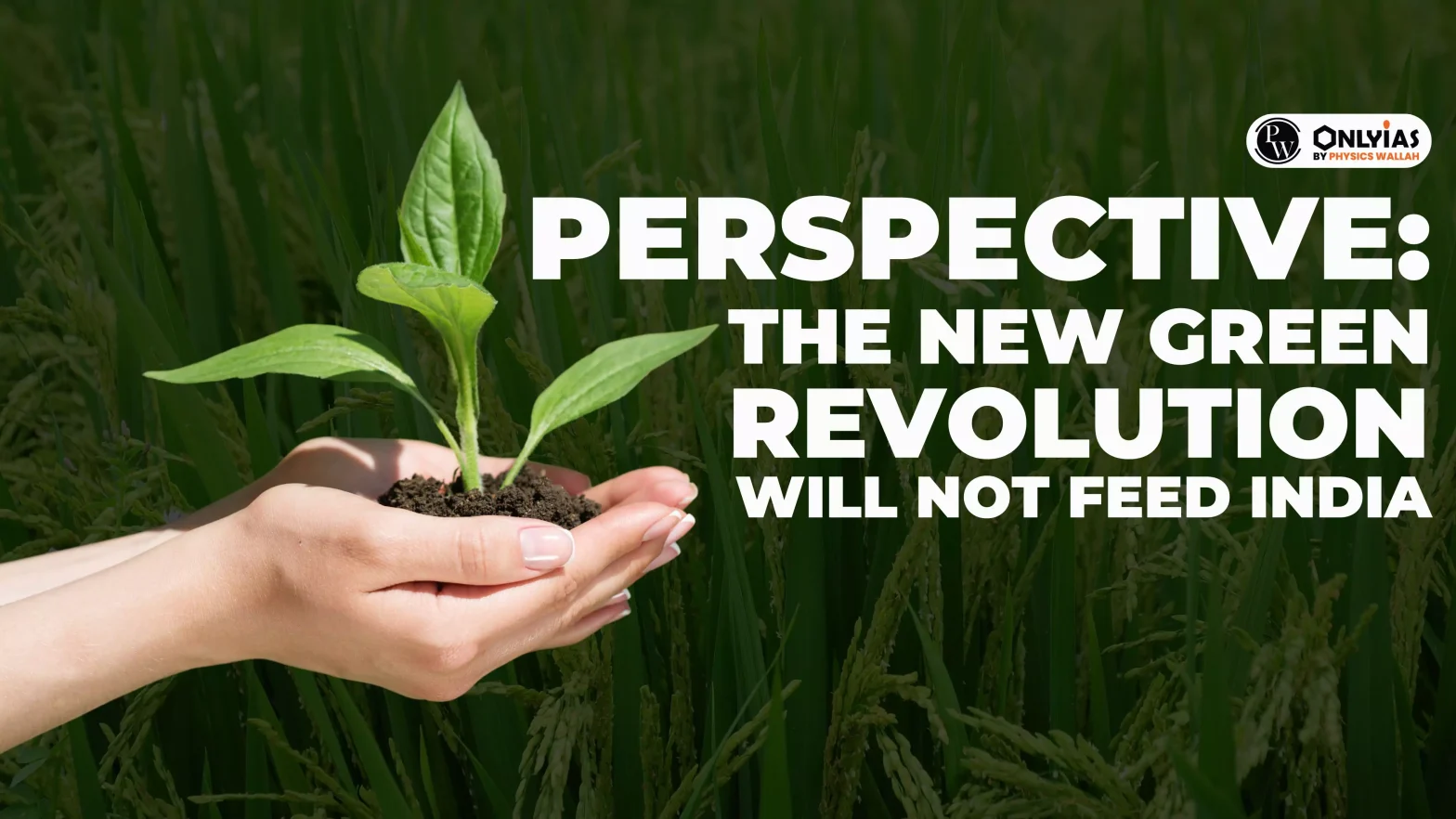Recently, Agriculture Minister Shivraj Singh Chouhan proposed increasing the subsidy for farmers transitioning from green-revolution techniques to ‘natural farming,’ also known as zero-budget Natural farming. However, the finance ministry has rejected the proposal to raise the subsidy.
Natural Farming
- Overview: Natural Farming is a chemical-free farming system rooted in Indian tradition enriched with modern understanding of ecology, resource recycling and on-farm resource optimization. It is considered as an agroecology based diversified farming system which integrates crops, trees and livestock with functional biodiversity.
- It is largely based on on-farm biomass recycling with major stress on biomass mulching, use of on-farm cow dung-urine formulations; maintaining soil aeration and exclusion of all synthetic chemical inputs.
- Core Practices and Techniques: Key practices in natural farming include the elimination of external inputs, relying on local seeds and on-farm production of essential inputs. For instance, microbial formulations like Bijamrita are used for seed treatment, and Jivamrita, a microbial inoculant, is applied to enrich soil health. Techniques like cover cropping and mulching with organic matter help recycle nutrients and create a favorable micro-climate for beneficial microbial activity.
- Natural farming emphasizes mixed cropping and diversity management, which includes integrating trees on the farm to maintain biodiversity. Pest management is achieved through the use of botanical concoctions such as neemastra, agniastra, and dashparni ark, made from locally sourced materials. Additionally, livestock, particularly native breeds, play an integral role by providing cow dung and urine, essential inputs for various farming practices.
- Water and moisture conservation is another critical component, ensuring sustainable resource use and maintaining soil fertility. This holistic approach not only supports food production but also ensures environmental sustainability and resilience.
Enroll now for UPSC Online Course
| Difference between Natural Farming and Organic Farming:
Natural farming eliminates all external inputs, relying solely on natural methods, while organic farming uses limited external products but emphasises natural methods over synthetic ones. |
Historical Background
In the 1960s, India grappled with severe food shortages and was heavily reliant on US food aid through the PL480 program. This period, marked by widespread hunger, spurred the need for an urgent and effective agricultural strategy. To combat the crisis, India launched the Green Revolution, a transformative initiative that revolutionized the country’s agriculture. Key components of the Green Revolution included:
- High-Yield Seeds: The introduction of high-yield variety (HYV) seeds that significantly increased crop productivity.
- Tube Well Irrigation: Expansion of irrigation infrastructure, including tube wells, which improved water availability for farming.
- Chemical Fertilizers: Adoption of chemical fertilizers to enhance soil fertility and boost crop yields.
These advancements helped India transition from a state of food scarcity to becoming a self-sufficient food exporter by the 1990s, marking a significant achievement in agricultural productivity. However, the Green Revolution also brought about several adverse environmental effects:
- Water Pollution: The increased use of chemical fertilisers and pesticides led to contamination of water bodies.
- Soil Degradation: Intensive farming practices resulted in soil erosion and reduced soil fertility.
- Increased Salinity: Overuse of irrigation caused rising soil salinity, impacting crop productivity.
- Groundwater Depletion: The excessive extraction of groundwater for irrigation led to a significant decline in water tables.
While the Green Revolution addressed immediate food security concerns, it also highlighted the need for sustainable agricultural practices to mitigate environmental damage.
Check Out UPSC Modules From PW Store
Should Natural Farming Be Implemented on a Large Scale?
Few critics argue that natural farming is neither sustainable nor practical on a large scale. Subhash Palekar, a prominent advocate of natural farming, has noted that while natural farming can yield high results on a smaller scale, critics point out its effectiveness diminishes when applied to larger areas.
- In the 1960s, India grappled with severe food shortages and implemented various initiatives, including the Krishi Pandit Awards, which rewarded farmers for high yields. During this period, natural farming methods were used, but they were primarily effective on smaller plots of land.
- Farmers found these methods beneficial in their localised settings, but scaling them up to larger agricultural areas posed significant challenges. The focus on individual, small-scale farming did not translate effectively to the demands of extensive land areas, highlighting the limitations of natural farming in addressing widespread food security issues.
Reverting to natural farming on a large scale risks undermining the gains achieved through the Green Revolution. The shift could potentially lead back to food insecurity, similar to the pre-Green Revolution era.
International Experiences with Natural and Organic Farming
Natural farming methods have been attempted in various countries but with limited success on a large scale:
- Japan: The concept of natural farming was promoted by scientist Masanobu Fukuoka. While it garnered attention and was implemented on a small scale, it did not see widespread adoption due to scalability issues. Farmers found it challenging to apply these methods to larger agricultural operations effectively.
- United States: Despite efforts by various organisations to promote natural and organic farming, these methods have not been widely adopted across large-scale farms. The reluctance to fully transition stems from the challenges of scaling and meeting the high demands of modern agriculture.
- Sri Lanka: The country experimented with organic farming, citing potential health benefits and hoping to drive consumer adoption. However, this shift led to a drop in agricultural productivity. The situation was further exacerbated by recent economic crises, which created chaos and led to the adoption of these practices without thorough research and planning.
Enroll now for UPSC Online Classes
Conclusion
India must carefully evaluate the consequences of adopting natural farming on a large scale. While the green revolution’s negative impacts, such as environmental degradation, need addressing, natural farming may not be the ideal solution due to scalability and practicality issues. It is crucial to seek balanced and researched approaches to enhance agricultural sustainability while ensuring food security.
![]() 17 Sep 2024
17 Sep 2024
